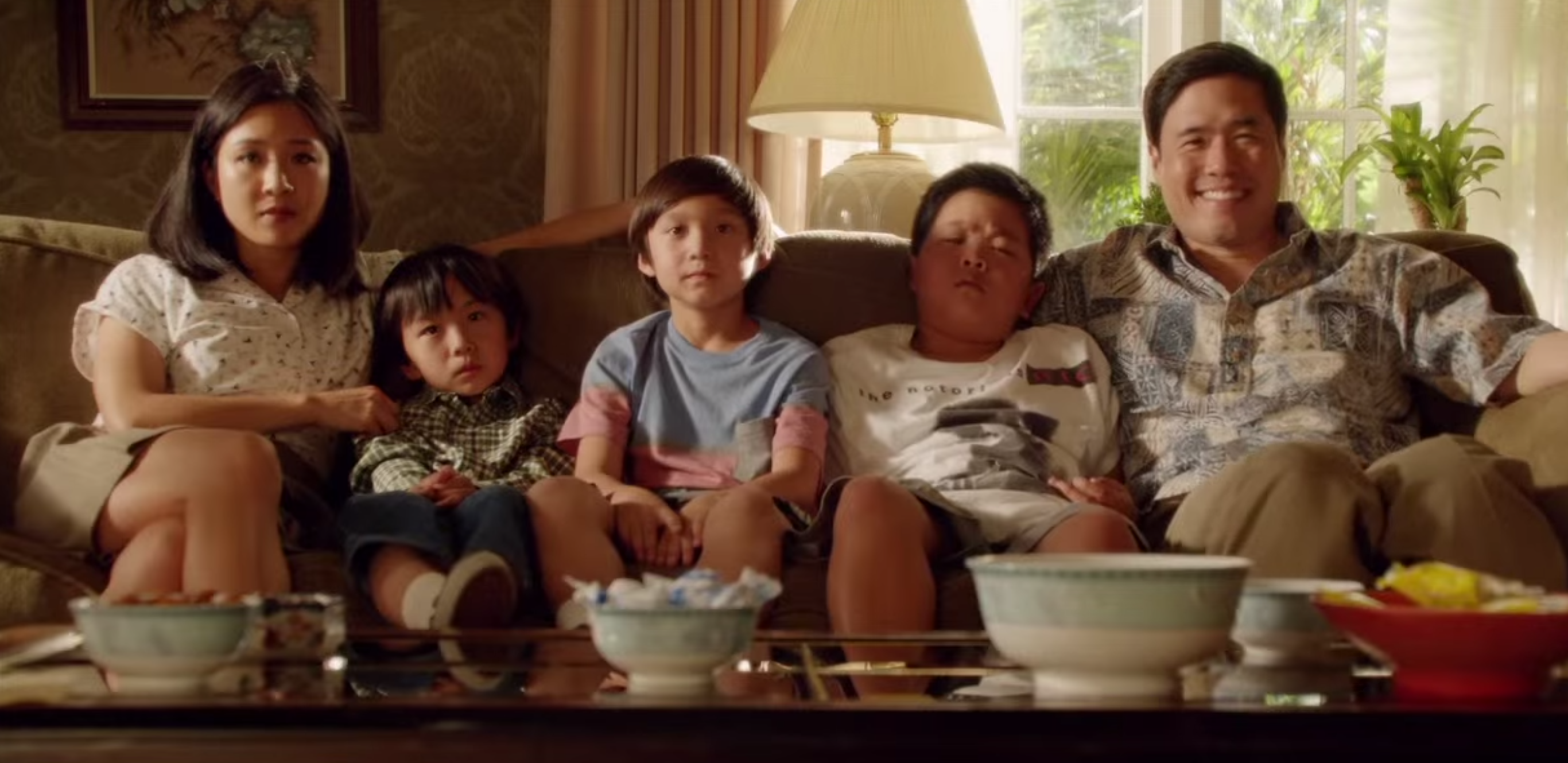We are four episodes in with the historic television show, Fresh Off the Boat. Among the many reviews and essays that revolved around the show, the best read in TK's mind was this piece by Clarissa Wei:
I grew up resenting my parents for all of the above because it was far different from the childhoods I saw and devoured on television. I thought my parents were crazy; that my mom was neurotic and my dad was overly obsessed with American symbolism. And while I had a vague sense that other Asian-American families had similar experiences, I had no idea just how similar the experiences were. There were no reference points.
. . .
Yes, every Asian-American childhood is different, and Fresh Off the Boat is only based off of one Asian-American family. But I relate to it far more than any other television show I have ever seen in my life. For once I have something to identity with.
Asian-American kids desperately need shows like Fresh Off the Boat as reference points. The small details matter. Watching Jessica eat an apple off of her knife, seeing Louis hire white actors for a commercial, seeing Eddie being taunted for eating noodles in school, and watching the Huang family encounter casually racist remarks by folks in the community — all this was like watching a montage of my own childhood.
"Fresh Off The Boat" Made Me Realize My Parents Aren’t Crazy [XO Jane]
This observation dovetails into a topic that TK has been mulling over for some time: growing up as an Asian American. This topic is interesting partly because it is an experience that TK has never fully had, because he immigrated to the U.S. as a 16 year old. Yet sooner or later, TK and TKWife will have their very own TKDaughter or TKSon, which adds urgency to this topic.
Having spent a lot of time studying and listening to stories of many different Asian Americans, one conclusion I made is: it is critical for an Asian American child to grow up feeling normal. Children may not be able to verbalize everything they sense, but they nonetheless keenly sense whether they are different from other children, and whether their family is different from other family. If everyone a child sees is different from her, she ends up defining herself through the difference rather than through who she is.
Of course, this is not always the case. Even under adverse situations, certain people with extra special mental strength manage to imbue their own agency in their identity. (One such example could be Jim Yong Kim, president of the World Bank. Growing up in rural Iowa where he belonged to one of two Asian families in the town, Kim graduated his high school as the valedictorian, class president and the quarterback for the football team.) But with most children, being surrounded completely by people who are different from them is a difficult challenge in the course of identity formation. It is hard not to let the difference define you. You become the shadow, rather than the thing itself.
Although TK cannot exactly prove this empirically, he is certain that this is the ultimate cause of the subtle difference in attitude between the Asian Americans in/from the West Coast versus Asian Americans elsewhere. There is no good way to characterize a large group of people in a very fine-tuned manner, so I will state it crudely: West Coast Asians, on the whole, exhibit significantly less angst about their Asian-ness. Having been surrounded by enough Asians throughout their lives, they never had the need to justify their Asian-ness. Not so with Asian Americans from elsewhere, like young Eddie Huang from Orlando. There is a reason why Huang so loudly proclaims his ethnic identity, while Roy Choi--a chef like Huang, but from Los Angeles--quietly, but confidently, mixes Korean and Mexican.
West Coast Asian Americans certainly live as racial minority in America. But in their day-to-day lives, they do not constantly experience that minority-ness. The minority experience is an unending, tiresome struggle to justify one's being. And there is only one way to prevent this struggle from being the essence of your identity: around a child, there needs to be a critical mass of Asian American families that serve as a reliable sample of the humanity, such that the child's family is not the only example of what being an Asian means. Without the critical mass that demonstrates Asian Americans' essential humanity, the Asian American identity will always be a kind of an add-on that is grafted onto what is "normal," i.e. white.
As Wei's essay ably shows, it is difficult for a child not to be shamed by the difference. Some children respond to this by pretending that the add-on does not exist; some respond by feeling excess shame or excess pride on this add-on. (Thus creating the three archetypes: "twinkie," "self-loather" and "AZN Pride".) But as long as the Asian American identity is considered an add-on rather than an integrated part of normalcy, an Asian American child is never at ease.
(I cannot even begin the grasp the experience of Asian American adoptees, most of whom experience the difference within the family, as they are growing up. I have quite a distance to cover, and I am not far enough along my journey to talk about that topic just yet.)
Got a question or a comment for the Korean? Email away at askakorean@gmail.com.





